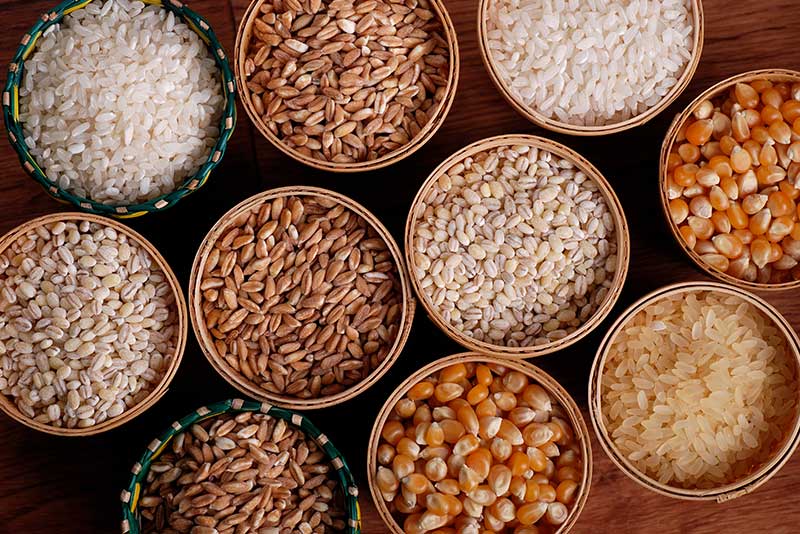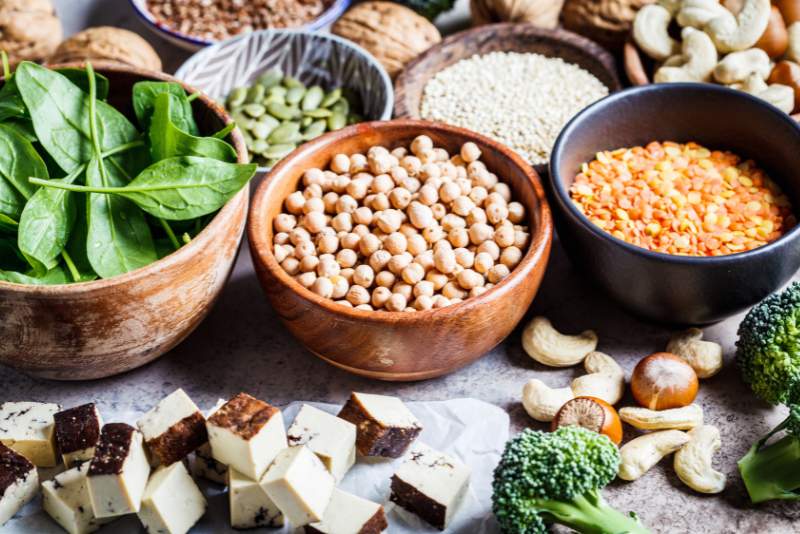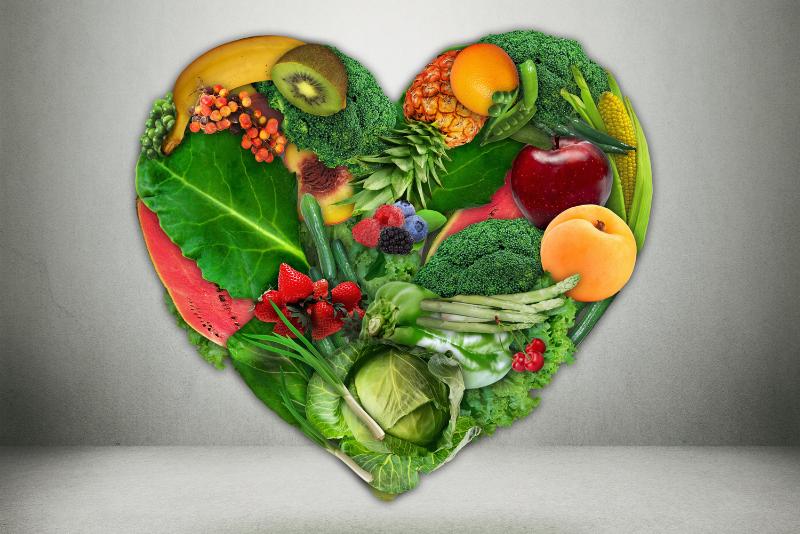Do you think eating for your heart means giving up all the tasty stuff? Think again! What if I told you that you can keep your heart strong and still enjoy delicious meals every day? That’s right! Eating well doesn’t have to be about boring foods and complicated recipes. In this article, we’re going to dive into some super easy and scrumptious ways to boost your heart health. Stick with us, and I promise, you’ll discover some tasty surprises that your heart will thank you for! Let’s make every meal a heart-healthy feast!
Basics of Heart Health: What You Need to Know
When we think about staying healthy, our heart is one of the most important organs to look after. It works hard every day, pumping blood throughout our body to keep us going. But what happens when we don’t take good care of it? Just like any other part of our body, our heart needs the right kind of care—and a big part of that care comes from what we eat.
Eating unhealthy foods can lead to build-up in our arteries, making it harder for our heart to pump blood. This can cause heart disease, which is a major health problem worldwide. On the other hand, eating the right foods can help protect our heart and keep it running smoothly.
So, what does a heart-healthy diet look like? It includes lots of fruits, vegetables, whole grains, and healthy fats. These foods help control weight, reduce blood pressure, lower cholesterol, and prevent inflammation, all of which are important for keeping the heart in good condition.
In addition to diet, our mental and emotional health also play a big role in heart health. Stress can negatively affect the heart, so activities like yoga, meditation, and regular physical exercise are beneficial. They not only help manage stress but also improve our overall heart health by keeping blood flowing smoothly and maintaining a balanced mood.
Key Components of a Heart-Healthy Diet
A heart-healthy diet isn’t just about avoiding bad fats and too much salt. It’s about filling your plate with foods that actively help your heart stay strong and efficient. Here’s a breakdown of the key ingredients you should incorporate into your diet for a healthy heart:
1. Whole Grains:

These are fundamental for heart health. Foods like oats, whole wheat bread, brown rice, and quinoa are great choices because they provide essential fibers, vitamins, and minerals. These nutrients help manage blood pressure and keep your heart’s blood vessels healthy.
2. Fruits and Vegetables:

These should be the stars of your diet. Loaded with vitamins, minerals, and antioxidants, fruits and veggies fight against heart disease by reducing blood pressure and lowering cholesterol levels. Try to include a variety of colors in your meals to get the widest range of nutrients.
3. Healthy Fats:

It’s a myth that all fats are bad for your heart. In fact, monounsaturated and polyunsaturated fats, which are found in olive oil, avocados, nuts, and fatty fish like salmon and mackerel, are vital. These fats help reduce the levels of bad cholesterol in your blood and raise the good cholesterol, which can prevent heart disease and stroke.
4. Good Proteins:

For a heart-healthy diet, incorporating good sources of vegetarian protein is essential. Foods like lentils, chickpeas, beans, tofu, and tempeh are excellent choices. These protein sources are not only low in fat but also high in fiber and other heart-friendly nutrients. They can help maintain muscle health and overall physical function without the saturated fats that are often found in animal proteins. Additionally, incorporating a variety of these proteins into your meals ensures you get a complete range of amino acids and the added benefit of important minerals and vitamins that support heart health.
5. Low-Fat Dairy:

Options like milk, yogurt, and cheese in their low-fat forms provide calcium and protein without contributing to the buildup of fat in your arteries.
6. Herbs and Spices:

Instead of salt, flavor your meals with a range of herbs and spices. Not only do they make your meals delicious without adding sodium, but many herbs like garlic and turmeric also offer additional heart benefits by reducing inflammation.
Each of these components plays a special role in not just protecting your heart but also in ensuring your overall health is robust. By balancing these elements in your meals, you can enjoy delicious, varied dishes that nourish your body and help keep your heart in good shape. Remember, integrating a wide range of these foods into your daily diet can make a significant difference to your heart health and your overall well-being.
To explore various effective diets specifically designed to combat heart disease, deepen your understanding here.
Foods to Avoid or Limit

According to the research, maintaining a heart-healthy diet involves knowing what foods can be detrimental to your cardiovascular health. Here are some specific foods and food groups you should eat less of to protect your heart:
- Processed Meats:
- Examples: Sausages, bacon, deli meats.
- Reason: High in sodium and unhealthy preservatives, which can contribute to high blood pressure and heart disease.
- High-Sodium Snacks:
- Examples: Chips, pretzels, and packaged snacks.
- Advice: Opt for low-sodium versions or better yet, choose healthy alternatives like raw vegetables or unsalted nuts.
- Trans Fats:
- Common Sources: Certain margarines, packaged baked goods, and fast foods.
- Impact: Increases bad cholesterol (LDL) and decreases good cholesterol (HDL), leading to higher risk of heart disease.
- Refined Carbohydrates:
- Examples: White bread, white rice, pastries.
- Effects: These can cause blood sugar spikes and are linked to increased risk of heart disease.
- Sugary Beverages:
- Include: Sodas, sweetened teas, and fruit-flavored drinks.
- Problem: These drinks can lead to obesity, which is a major risk factor for heart disease.
Practical Tips to Incorporate a Heart-Healthy Diet

Changing your diet can seem daunting, but it doesn’t have to be. As per the research, here are some practical tips to help you smoothly transition to a diet for a healthy heart without feeling overwhelmed:
- Start Small: You don’t need to overhaul your entire diet overnight. Begin with small, manageable changes like swapping out your morning pastry for a bowl of oatmeal or choosing water instead of soda. Gradually incorporate more heart-healthy foods into your meals.
- Plan Your Meals: Take a little time each week to plan your meals. This helps you avoid the temptation of last-minute unhealthy choices. Make a grocery list that includes lots of fruits, vegetables, whole grains, and healthy proteins, so you know exactly what you need to buy.
- Cook at Home More Often: When you cook at home, you have full control over what goes into your food. Try heart-healthy cooking methods like baking, grilling, or steaming instead of frying. Use herbs and spices to flavor your dishes instead of salt.
- Make Healthy Swaps: Replace high-fat dairy products with low-fat or non-dairy alternatives. Choose lean cuts of meat, and increase your intake of vegetarian proteins like beans and lentils. Opt for whole grains over refined ones.
- Be Smart About Snacking: Snacks can be part of a heart-healthy diet if you choose wisely. Keep healthy snacks like almonds, carrots, hummus, or Greek yogurt on hand to satisfy hunger between meals without hurting your heart.
- Stay Hydrated: Drinking enough water is important for overall health and can help you manage your hunger and avoid overeating.
- Include Family and Friends: Making dietary changes can be more enjoyable and sustainable when shared with others. Involve your family and friends in your meal planning and preparation, or start a cooking club to explore new recipes together.
By following these tips, you can make the transition to a heart-healthy diet a positive and enjoyable journey. Remember, every small change you make adds up to big benefits for your heart health. Keep these strategies in mind as you work towards a healthier lifestyle that supports not just your heart, but your overall well-being.
In addition to a balanced diet, practices like meditation can improve heart health by reducing stress. Learn more about how Heartfulness Meditation can benefit your cardiovascular health here.
Common Myths and Misconceptions About Heart-Healthy Diets
When embarking on a journey to a healthier heart through better eating habits, it’s important to clear up some widespread myths and misconceptions that might deter you. Let’s debunk these myths to pave the way for a clearer understanding of what a heart-healthy diet truly involves:
- Myth 1: Heart-healthy food is too expensive.
This is a common concern, but heart-healthy eating doesn’t have to break the bank. Many cost-effective options like beans, lentils, oats, and frozen vegetables are both nutritious and affordable. Planning and shopping smart—like buying in bulk and choosing seasonal produce—can further reduce costs.
- Myth 2: Healthy food doesn’t taste good.
Many people worry about missing out on flavor when they switch to a heart-healthy diet. However, with the use of herbs, spices, and healthy cooking techniques like grilling and roasting, you can prepare delicious meals that are good for your heart. Experimenting with different cuisines can also introduce new and exciting flavors to your diet.
- Myth 3: If I have a family history of heart disease, diet won’t make a difference.
It’s easy to think that genetics doom you to heart disease, but lifestyle factors, including diet, play a significant role in heart health. A healthy diet can markedly reduce your risk, even if heart disease runs in your family.
- Myth 4: I need to cut out all fats from my diet.
Not all fats are bad. In fact, monounsaturated and polyunsaturated fats—found in olive oil, nuts, and fatty fish—can actually improve heart health by lowering bad cholesterol levels and raising good cholesterol levels. It’s about choosing the right types of fats and avoiding trans fats and excessive saturated fats.
- Myth 5: A heart-healthy diet means eating foods I don’t like.
You don’t have to eat foods you dislike to improve your heart health. There are a wide variety of fruits, vegetables, grains, and protein sources to choose from. It’s all about finding the healthy foods you enjoy and incorporating them into your diet in ways that satisfy your taste buds.
By understanding the truths behind these myths, you can feel more confident and motivated in pursuing a diet for a healthy heart. Knowing the facts will help you make informed decisions that contribute to long-term heart health and overall well-being.
Frequently Asked Questions About Heart-Healthy Diets
To help you navigate the complexities of maintaining a healthy heart through diet, here are some frequently asked questions and answers:

Priyanka Khurana Goyal is a prominent Indian figure renowned for her diverse accomplishments and contributions across various fields.. Read more



